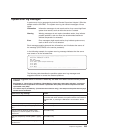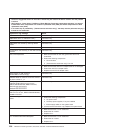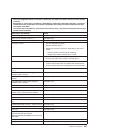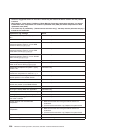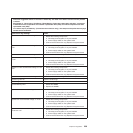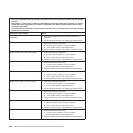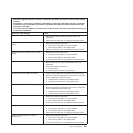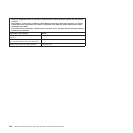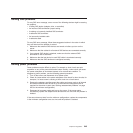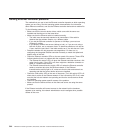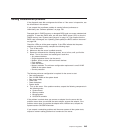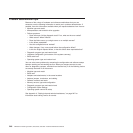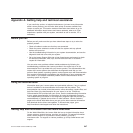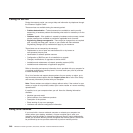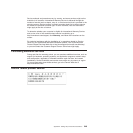
Solving SAS problems
For any SAS error message, one or more of the following devices might be causing
the problem:
v A failing SAS device (adapter, drive, or controller)
v An incorrect SAS termination jumper setting
v A missing or incorrectly installed SAS terminator
v A defective SAS terminator
v An incorrectly installed cable
v A defective cable
For any SAS error message, follow these suggested actions in the order in which
they are listed until the problem is solved:
1. Make sure that external SAS devices are turned on before you turn on the
server.
2. Make sure that the cables for all external SAS devices are connected correctly.
3. If an external SAS device is attached, make sure that the external SAS
termination is set to automatic.
4. Make sure that the last device in each SAS chain is terminated correctly.
5. Make sure that the SAS devices are configured correctly.
Solving power problems
Power problems can be difficult to solve. For example, a short circuit can exist
anywhere on any of the power distribution buses. Usually, a short circuit will cause
the power subsystem to shut down because of an overcurrent condition. To
diagnose a power problem, use the following general procedure:
1. Turn off the server and disconnect all ac power cords.
2. Check for loose cables in the power subsystem. Also check for short circuits, for
example, if a loose screw is causing a short circuit on a circuit board.
3. Remove the adapters and disconnect the cables and power cords to all internal
and external devices until the server is at the minimum configuration that is
required for the server to start (see “Solving undetermined problems” on page
245 for the minimum configuration).
4. Reconnect all ac power cords and turn on the server. If the server starts
successfully, replace the adapters and devices one at a time until the problem is
isolated.
If the server does not start from the minimum configuration, replace the components
in the minimum configuration one at a time until the problem is isolated.
Chapter 5. Diagnostics 243



